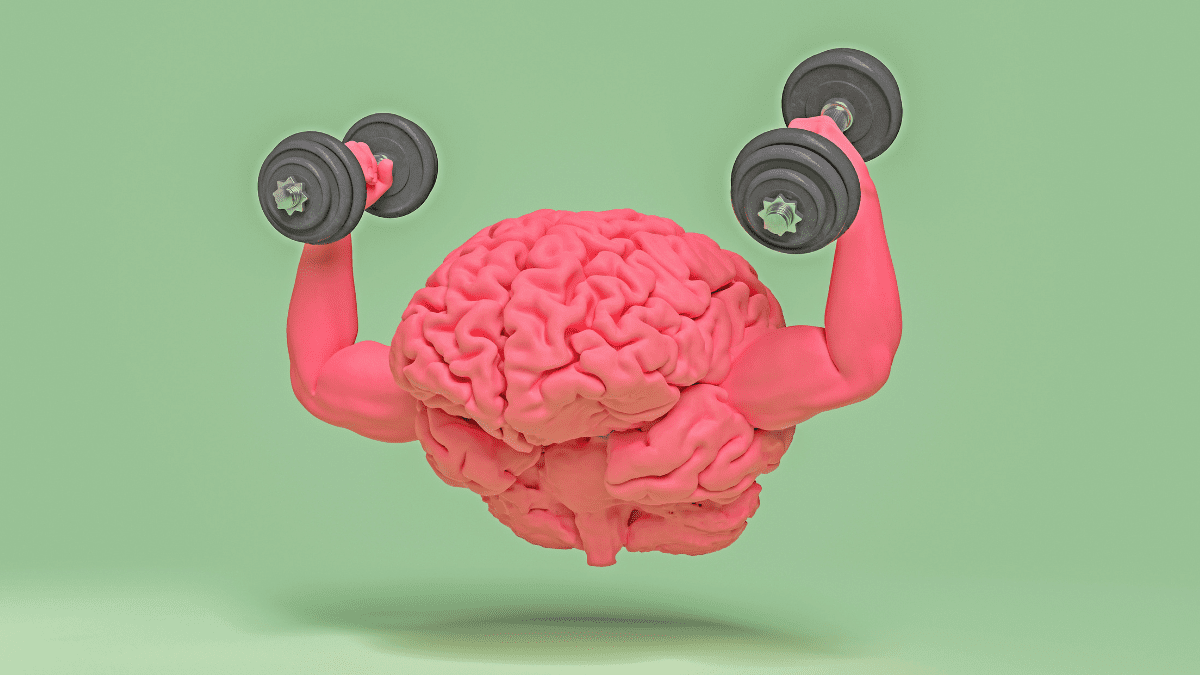Plant-Based vs. Keto: The Truth No One Tells You!
Plant-Based vs. Keto—Which diet is truly better? The hidden risks, shocking truths, and life-changing benefits will surprise you. Find out what no one is telling you!

Is your diet helping or hurting you? Plant-Based vs. Keto is one of the most debated topics in nutrition. Some say plant-based eating is the key to longevity. Others believe keto is the best way to lose weight and boost energy. But which one is truly better? The answer is not as simple as you think.
Both diets claim to improve health. However, they work in completely different ways. One focuses on high-carb, nutrient-rich plants, while the other thrives on high-fat, low-carb foods. Both have benefits. But they also come with hidden risks. Before choosing a side, it’s important to understand the science behind each.
Certain diets can even help reverse inflammation and restore energy. If you struggle with fatigue, pain, or bloating, your food choices may be the cause. Learn more about this in our guide on anti-inflammatory diets and how they heal the body.
Now, let’s break down the truth about Plant-Based vs. Keto. You might be surprised by what you discover!
What is a Plant-Based Diet?
A plant-based diet focuses on whole, natural foods from plants. It includes vegetables, fruits, legumes, nuts, seeds, and whole grains. Some people follow a strict vegan approach, while others allow small amounts of animal products. However, plants remain the foundation.
Many people turn to this diet for health reasons. Studies show that eating more plants lowers the risk of heart disease, improves digestion, and supports longevity. This way of eating is also linked to lower inflammation and better energy levels. However, it is not perfect.
The Benefits of a Plant-Based Diet
Eating mostly plants comes with powerful benefits. First, plant foods are packed with vitamins, minerals, and antioxidants. These nutrients help protect cells from damage. Second, fiber-rich foods improve gut health. A strong gut supports digestion, immunity, and even mental health.
Weight management is another advantage. Since plant foods are naturally low in calories and high in fiber, they keep you full longer. This helps prevent overeating and cravings. Many experts agree that plant-based diets reduce the risk of chronic diseases.
The Hidden Downsides of a Plant-Based Diet
Despite its benefits, this diet has challenges. Protein intake can be an issue. While plants contain protein, it may not be as complete as animal sources. This means you need to eat a variety of plant proteins to get all essential amino acids.
Another issue is nutrient absorption. Some plant foods contain antinutrients that block minerals like iron, calcium, and zinc. This can lead to deficiencies over time. Supplementing with vitamin B12 and omega-3s may be necessary.
Carbohydrate intake is also higher in a plant-based diet. While healthy carbs fuel the body, too much can cause blood sugar spikes. Those with insulin resistance or diabetes need to be mindful of this.
Overall, a plant-based diet can be extremely healthy when done correctly. However, it requires proper planning to avoid deficiencies. Next, let’s explore the keto diet and see how it compares.
What is a Keto Diet?
A keto diet is a low-carb, high-fat eating plan. It forces the body to burn fat for energy instead of carbohydrates. This process is called ketosis. When carb intake is low, the liver produces ketones. These ketones become the body’s main fuel source.
Many people follow keto for weight loss. Others use it for mental clarity, stable blood sugar, or increased energy. Unlike a plant-based diet, keto focuses on fat as the primary nutrient. However, it also has hidden challenges.
The Benefits of a Keto Diet
Keto is well-known for weight loss. Since the body burns fat for fuel, it helps shed extra pounds quickly. The diet also controls hunger by reducing cravings. This happens because fats and proteins keep you full for longer.
Another major benefit is blood sugar regulation. Without carbs, insulin levels remain stable. This makes keto popular for those managing diabetes or insulin resistance. Many studies suggest that low-carb diets improve metabolic health and reduce inflammation.
Keto is also linked to better brain function. Some research suggests ketones provide a steady energy source for the brain. This may improve focus, memory, and mental clarity.
The Hidden Downsides of a Keto Diet
Despite its benefits, keto comes with risks. The first is the keto flu. When switching to low carbs, the body needs time to adjust. Symptoms like headaches, fatigue, and brain fog are common in the first week.
Another concern is nutrient deficiencies. Since many high-carb foods contain essential vitamins, cutting them out can cause imbalances. Keto eaters often lack fiber, which affects digestion and gut health.
Long-term sustainability is another issue. Eating high-fat foods daily can be challenging. Many struggle with maintaining ketosis over time. Social situations, cravings, and restrictive food choices make keto hard to follow.
While a keto diet has clear advantages, it may not suit everyone. Next, let’s compare plant-based vs. keto side by side to reveal key differences.

The Hidden Truth: Key Differences Between Plant-Based vs. Keto
Both diets claim to improve health. However, plant-based vs. keto diets work in opposite ways. One focuses on carbohydrates, while the other relies on fats. Understanding their key differences can help you decide which suits your body and goals.
Macronutrient Breakdown: High-Carb vs. High-Fat
A plant-based diet is rich in carbohydrates. Whole grains, fruits, and legumes provide energy. However, excess carbs can lead to blood sugar spikes. In contrast, a keto diet is high in fat and almost eliminates carbs. It shifts the body into ketosis, forcing it to burn fat instead of glucose.
Weight Loss and Metabolism: Which Burns More Fat?
Keto is often praised for quick fat loss. Since insulin levels drop, the body burns stored fat for energy. This makes it effective for reducing stubborn weight. On the other hand, a plant-based diet for weight loss works differently. It is naturally lower in calories and high in fiber. This keeps you full and prevents overeating.
Some research suggests that low-carb and plant-based diets both help with weight management. The right choice depends on your metabolism, lifestyle, and long-term commitment.
Nutritional Gaps: What Each Diet Lacks
Every diet has its challenges. Plant-based vs. keto diets both require careful planning. Plant-based eaters may struggle with protein and vitamin B12 deficiencies. Keto followers often lack fiber, which can affect digestion.
Additionally, keto limits many nutrient-rich foods. Without fruits and whole grains, certain vitamins may be missing. Meanwhile, plant-based diets can be low in omega-3 fatty acids, which are essential for brain health.
Sustainability and Lifestyle: Which is Easier to Follow?
Long-term success depends on sustainability. A plant-based diet is easier to maintain in social settings. It also aligns with ethical and environmental concerns. However, it requires meal prep to avoid processed foods.
Keto is more restrictive. It requires tracking carbs carefully. Many people struggle to stay in ketosis, especially when eating out. This makes keto harder to follow for long periods.
Choosing between plant-based vs. keto depends on personal goals. Next, let’s explore which diet works best for different lifestyles and health needs.
Who Should Choose Plant-Based vs. Keto?
Choosing between plant-based vs. keto depends on your body, goals, and lifestyle. Each diet offers benefits, but they work differently. Some people thrive on plants, while others feel better with high fats. Understanding which diet fits your needs can help you make the right choice.
Best for Weight Loss: Which Diet Works Faster?
Both diets can help with weight loss. However, they take different approaches. A plant-based diet for fat loss relies on fiber-rich foods. These keep you full, reduce cravings, and lower overall calorie intake. Since plant-based diets are naturally lower in fat, they may help with gradual, steady weight loss.
On the other hand, keto promotes rapid fat burning. By cutting carbs, the body switches to burning stored fat. This makes keto effective for quick results. Research suggests that low-carb diets like keto boost fat loss by increasing metabolism. However, long-term results depend on consistency.
Best for Heart Health: Which Diet Supports Cardiovascular Health?
Heart health is a major concern for many people. Plant-based vs. keto diets impact the heart in different ways. A plant-based diet is rich in fiber, antioxidants, and healthy fats. Studies show it lowers cholesterol, reduces inflammation, and improves heart function.
Keto has mixed results. While it may improve cholesterol levels short-term, some worry about the long-term effects of high fat intake. Saturated fats from animal sources could increase heart disease risk. To stay heart-healthy on keto, focus on unsaturated fats like avocado and olive oil.
Best for Energy and Mental Focus
A keto diet for brain health provides steady energy. Ketones fuel the brain, preventing energy crashes. Many people report better focus, memory, and mental clarity on keto.
A plant-based diet also supports brain health but works differently. Carbohydrates provide quick energy, but spikes and crashes can happen. To maintain focus, choose complex carbs like quinoa, beans, and sweet potatoes.
Both diets have unique benefits. The best choice depends on personal preference and long-term sustainability. Next, let’s explore if a plant-based keto diet is possible.
Can You Combine Plant-Based vs. Keto?
Many people wonder if plant-based vs. keto can work together. At first glance, these diets seem completely opposite. One is high in carbs, while the other is extremely low. However, with the right approach, it is possible to combine them.
A plant-based keto diet focuses on healthy fats from plant sources. Instead of animal-based foods, it includes avocados, nuts, seeds, coconut oil, and olives. Low-carb vegetables replace grains and legumes. This balance allows the body to enter ketosis while still following a plant-based lifestyle.
The Benefits of a Plant-Based Keto Diet
Combining these two diets offers unique benefits. First, it provides clean, plant-based fats. These help reduce inflammation and improve heart health. Second, it removes processed carbs, which can cause blood sugar spikes. This makes it a good choice for those managing insulin resistance.
Another advantage is better digestion. A traditional keto diet lacks fiber, leading to gut issues. A low-carb, plant-based diet keeps digestion smooth while maintaining ketosis. Studies suggest that plant-based keto diets support metabolic health and weight loss.
Challenges of a Plant-Based Keto Diet
Despite its benefits, this diet has challenges. Protein intake can be tricky. Without meat or dairy, plant-based keto followers must rely on tofu, tempeh, and hemp seeds. These sources provide protein but may not be enough for everyone.
Another issue is finding variety. Cutting out grains, beans, and fruits limits food choices. Without proper planning, meals can become repetitive. To succeed, focus on nutrient-dense, whole foods.
How to Start a Plant-Based Keto Diet
To combine plant-based vs. keto, start by choosing the right fats. Opt for avocados, olives, and nuts instead of dairy and animal fat. Next, eat plenty of low-carb vegetables like spinach, kale, and zucchini. Finally, track carb intake carefully. Even healthy plant foods can push the body out of ketosis.
With the right balance, a plant-based keto diet can work. It requires planning, but the benefits make it worth the effort.

The Verdict: Which Diet is Best for You?
Both plant-based vs. keto diets offer unique benefits. However, the right choice depends on your health goals, lifestyle, and personal preferences. Each diet affects the body differently. Understanding their key differences can help you decide.
A plant-based diet is rich in fiber, antioxidants, and essential nutrients. It supports heart health, improves digestion, and reduces inflammation. However, it requires careful planning to get enough protein and essential vitamins.
A keto diet promotes fat-burning, stable energy, and mental clarity. It helps with weight loss and blood sugar control. However, it can be difficult to sustain and may lead to nutrient deficiencies.
Making the Right Choice
If you want to improve heart health and eat more whole foods, plant-based may be best. If weight loss and mental focus are your goals, keto might work better. However, sustainability is key. Choose the diet that feels right for you.
For those who want the benefits of both, a plant-based keto diet is an option. It combines healthy fats from plants with low-carb vegetables. This approach requires extra planning but offers a balanced way to eat.
Final Thoughts
No diet is perfect. The best choice depends on your body’s needs. Experiment, listen to your body, and adjust as needed. Long-term health comes from balance, not strict rules. Whatever you choose, focus on whole, nutrient-dense foods. That is the real key to lasting wellness.







